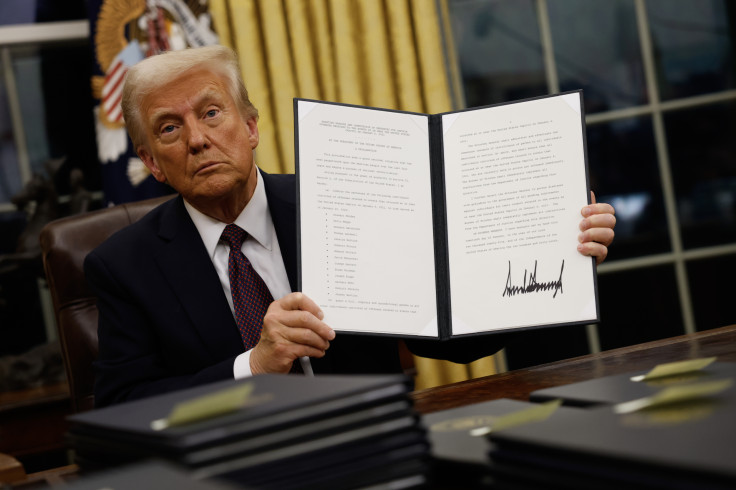
As the Trump administration's fight to end birthright citizenship continues to make headlines, with a federal district court judge temporarily blocking the motion Thursday, the government's latest bid to achieve its goal lies in questioning the citizenship status of millions of Native Americans.
Days after President Trump signed an executive order limiting birthright citizenship, Federal District Court Judge, John C. Coughenour sided with Washington, Arizona, Illinois and Oregon, signing a restraining order that blocks the administration's order for 14 days, renewable upon expiration. "This is blatantly unconstitutional order," he said when justifying his decision.
The judges' block came to no surprise, as the decision— which Trump had campaigned on during the 2024 election— was almost certainly going to be met with legal challenges, given that birthright citizenship is protected under the U.S. Constitution's 14th amendment.
But the administration's argument also brought forward decades-long debates about citizenship to certain communities.
Legal precedent has long interpreted the amendment— that "all persons born or naturalized in the United States, and subject to the jurisdiction thereof, are citizens of the United States"— applies to every baby born in the United States, with a few limited exceptions: Children of accredited foreign born diplomats; children born to noncitizens on U.S. territory occupied by an invading army; and; for a time, children born to Native Americans on reservation, according to The New York Times.
However, in a recent document defending the birthright citizenship Order, the Department of Justice, under Trump, falsely claimed that children of Native Americans are not entitled to citizenship.
"The Supreme Court's decision in Elk v. Wilkins, 112 U.S. 94 (1884), confirms that children of non-resident aliens lack a constitutional birthright to citizenship," the document reads. "In Elk, the Court held that, because members of Indian tribes owe 'immediate allegiance' to their tribes, they are not 'subject to jurisdiction' of the United States and are not constitutionally entitled to citizenship."
But, those arguments are seemingly outdated, since they are based on 19th-century legal provisions that precede the Indian Citizenship Act of 1924 passed by Congress, which established citizenship for Native Americans who were previously excluded by the Constitution, The Juneau Empire reports.
At the same time, since 1898, when United States v. Wong Kim Ark was decided by the Supreme Court, American law and practice has held that birthright citizenship applies to children of foreigners, The Economist reports.
Trump's executive order, signed just hours after he took office, declared that children born in the United States to undocumented immigrants after Feb. 19 would no longer be treated as citizens. The order would also extend to babies born to mothers who are in the country legally but temporarily, such as tourists, university students or temporary workers, if the father is a noncitizen, according to The New York Times.
It remains unclear what the fate of the new Order will be. For one, a president cannot overturn over a century of precedent about how to interpret a constitutional amendment with an executive order. Also, even if it does survive its many legal challenges, implementing it would be extremely difficult, given that when applying for passports Americans have to submit only a birth certificate to prove their citizenship, which do not now record the citizenship or legal status of parents.
The next hearing for the Order is scheduled for Feb. 6, where Judge Coughenour is set to hear arguments on whether to issue a preliminary injunction, which would block the executive order long term while the case proceeds.
In the meantime, other cases are underway. The next hearing for the Order is in a case brought in Maryland by CASA, a nonprofit immigrants rights organization based in the mid-Atlantic, set for Feb. 5 at U.S. District Court in Greenbelt, Maryland. Another lawsuit, led by New Jersey on behalf of 18 states, the District of Columbia and San Francisco, and a challenge brought in in Massachusetts by the Brazilian Worker Center do not yet have hearings scheduled.
© 2025 Latin Times. All rights reserved. Do not reproduce without permission.




